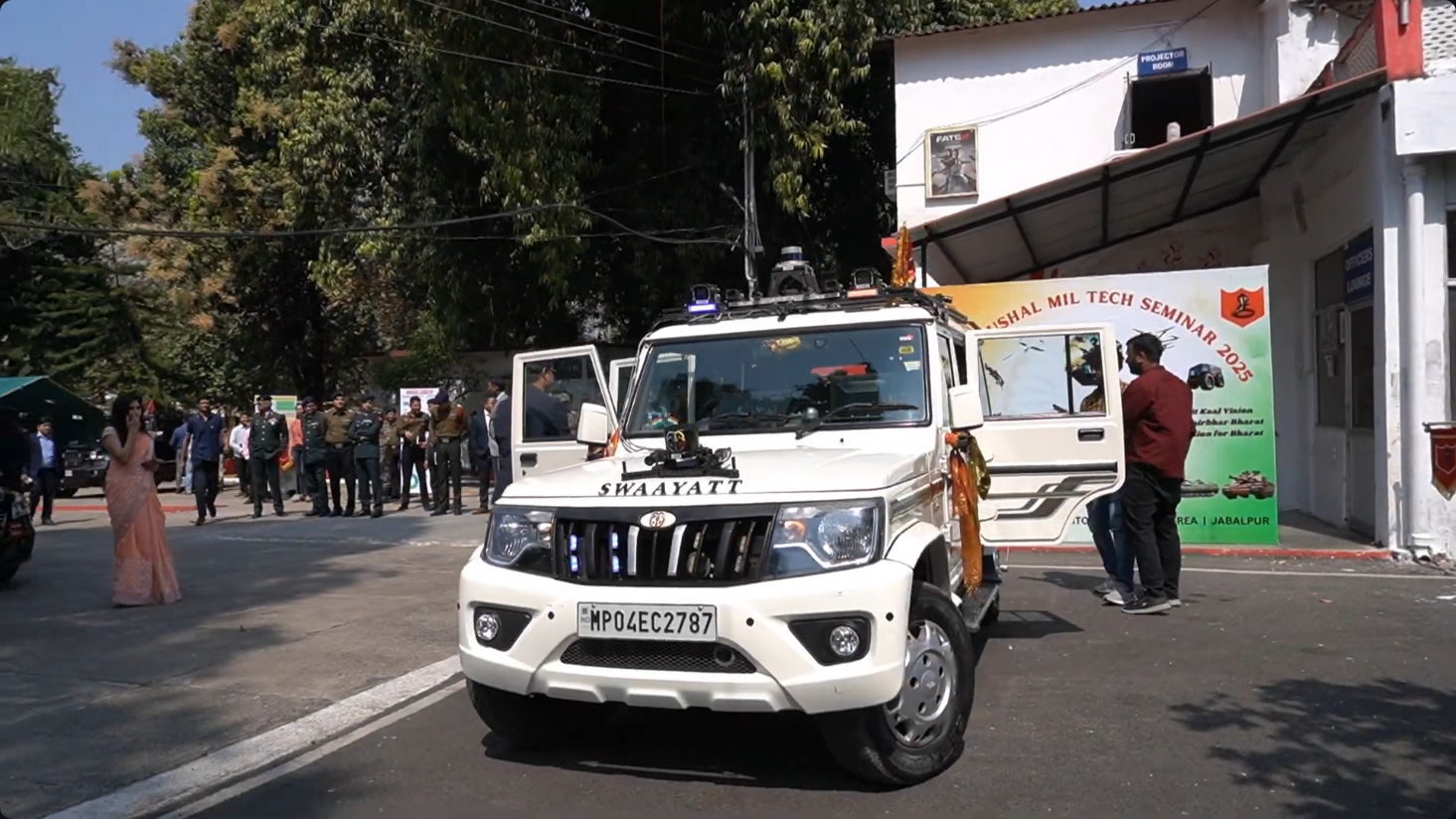Autopilot in Indian traffic needs fast, local computation. Cloud adds latency and risk. Our friends at Swaayatt Robots wanted a zero lag, zero excuses, fully on board solution.
About the client
Swaayatt Robots is a vehicle automation company based in Bhopal. Their cars sense, decide, and drive on their own in dense Indian traffic without any human intervention. The stack depends on live processing of multi-camera and multi-sensor data which in itself can be daunting. We already regularly supply high end workstations to them. But this brief was slightly different. The computer had to live in the trunk and run off of batteries while the car moved.
The challenge
A regular desktop would fail here. Trunks naturally have poor airflow. And needless to say Indian roads bring bumps, speed breakers, and dust. Heat starts becoming a problem. Weight might shift. Cables could shake loose. There is limited power headroom from batteries. The system still has to push heavy AI inference without dropping frames for maximum safety.
The objective
Build a rugged compute unit that:
- Can ingest all camera and sensor feeds in real time.
- Runs the full AI stack with low latency and no throttling.
- Survives shock, vibration, and heat inside a closed trunk.
- Fits battery power limits with safe thermals.
- Is easy to service by our team for quick turnarounds in Bhopal.
The solution we provided
Chassis and durability
- SilverStone RM42 4U all metal rackmount cabinet which is made from rigid frame, and has fewer plastic failure points.
- Dedicated internal bracing and an additional support bracket for the GPU to remove wobble.
- Shock aware cable routing and locking connectors to resist vibration.
Thermals and airflow
- High static pressure airflow design using multiple 80 mm 5000 RPM server grade fans and 120mm 3000 RPM fans.
- Directed intake and exhaust path to pull fresh air from available vents in the trunk.
- Dust filtering that does not choke pressure, simple to clean on site.
Compute spec tuned for trunk duty
- Intel Core i9 14900f CPU for strong per core throughput.
- 64 GB RAM for large context buffers and queues.
- Blower style RTX 4090, dual slot for reduced weight and size, rare to procure but ideal here. It exhausts heat straight out, unlike open shroud cards that recirculate hot air in cramped spaces.
Power and efficiency
- CPU and GPU strategically undervolted to have the same performance targets at lower watts.
- Lower power cuts heat, extends battery run time, and reduces fan noise spikes.
- PSU with stable delivery on 12V rails, sized for transient spikes from the 4090.
What this enables
- Live capture and processing inside the vehicle, no cloud dependency.
- Stable throughput for perception and planning, even during heat and vibration.
- Predictable power drawn from the battery pack.
- Faster iteration for Swaayatt Robots because hardware is steady and serviceable.
Result
The system runs their camera car stack in real time, inside the trunk, without lag. Thermal headroom is stable. No throttling in long drives. Service is handled by one team, TheMVP, with quick support when needed.


Leave a Reply